2016 Toyota 4Runner Review
It felt almost blasphemous, turning up at Tesla's Model X launch in the vast 2016 Toyota 4Runner. Stood in line outside, surrounded by Tesla owners – many of them preorder customers for the new electric SUV – discussing the longest trip on a single charge they'd made, or the money on gas they'd saved, or just how generally superior to dinosaur-juice burning cars their electric steeds turned out to be, I couldn't help but dwell on the 4Runner's 4.0-liter V6 engine and its 18mpg mileage.
The 4Runner squeezes 270 HP and 278 lb-ft of torque from those four liters, with a 5-speed automatic transmission. In Trail Premium form like the $41,345 truck Toyota delivered me, that's altogether rated for 17mpg in the city and 21mpg on the highway. With my own mixed driving I managed 18.5mpg on average.
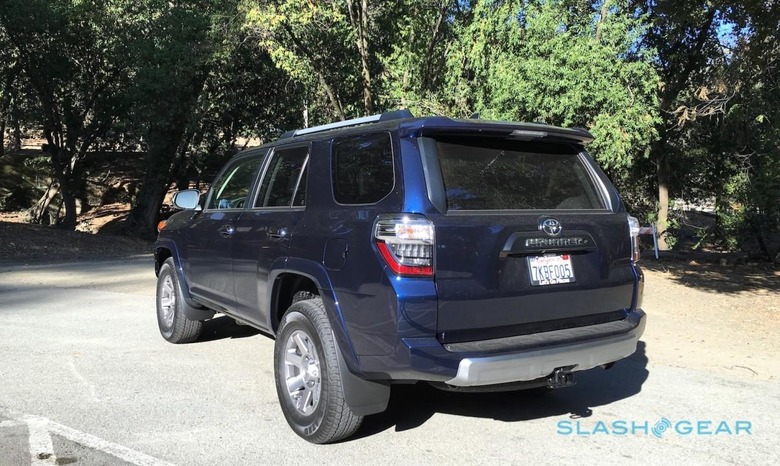
That doesn't seem so bad, considering its curb weight of 4,750 pounds. It'll tow 5,000 pounds, too, and seat five inside – the SR5 and Limited have options for a third-row for another two people. The slab-fronted, aggressively styled fascia can't help much, either, though it sure does look intimidating when it fills your rear-view mirror.
There's a willfulness to the 4Runner in how devoted it clings to an architecture other trucks left behind generations ago. Body-on-frame may have fallen from favor among most manufacturers as SUVs got fancier and more car-like, but Toyota makes a point of sticking with it for its off-road ruggedness.
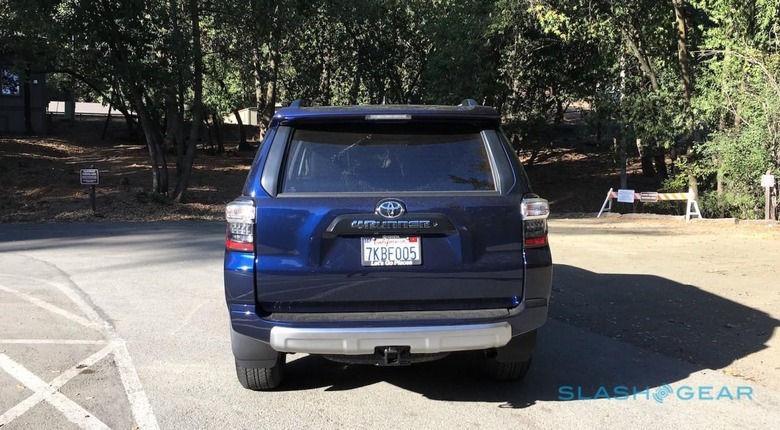
It's not like that isn't a compelling argument in many ways. Body-on-frame – where the frame of the car, to which the drivetrain is attached, is separate from the body – has a proven track record when it comes to handling paths away from pristine tarmac. Problem is, when you're actually on roads the reasons many vehicles moved away from it become more glaring.
I'd describe the 4Runner's ride as... distinctive. There's a combination of bounciness and boat-like lunging that exposes a suspension setup intended for mud trails. Cornering is wallowy, though it's worth noting that I never felt like the Toyota was going to lose grip. Any inclination to keep pushing was quickly vetoed by everyone else in the truck, mind, who were starting to get seasick.
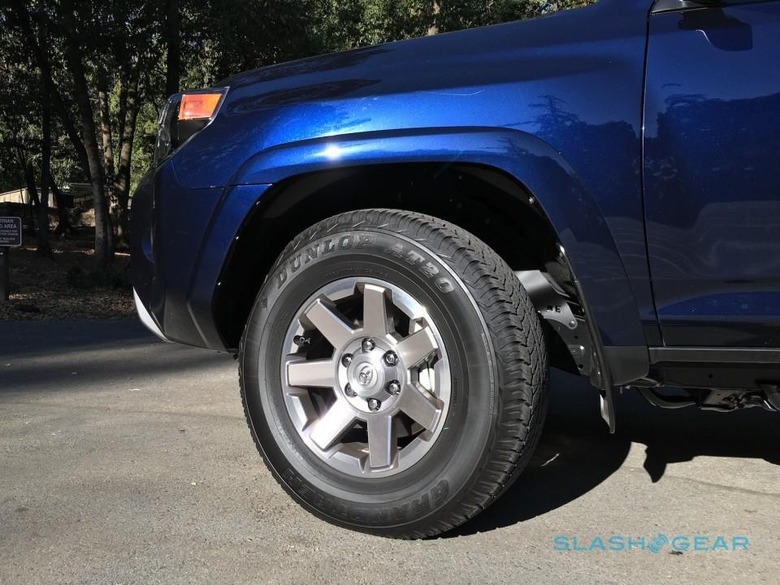
My tester also had the $1,750 Kinetic Dynamic Suspension System (KDSS) option fitted, which boosts suspension travel by selectively disengaging the truck's anti-roll bars.
All the same, it's not like the 4Runner has completely forgotten the 21st Century. No, it may not be an all-electric stallion, but you get heated seats, power windows all around – including a power tailgate window – and a moonroof. An optional sliding cargo deck ($350) pulls out to make accessing bags and boxes easier; I used it to set up a temporary office, plugging my MacBook into the 120V outlet back there.
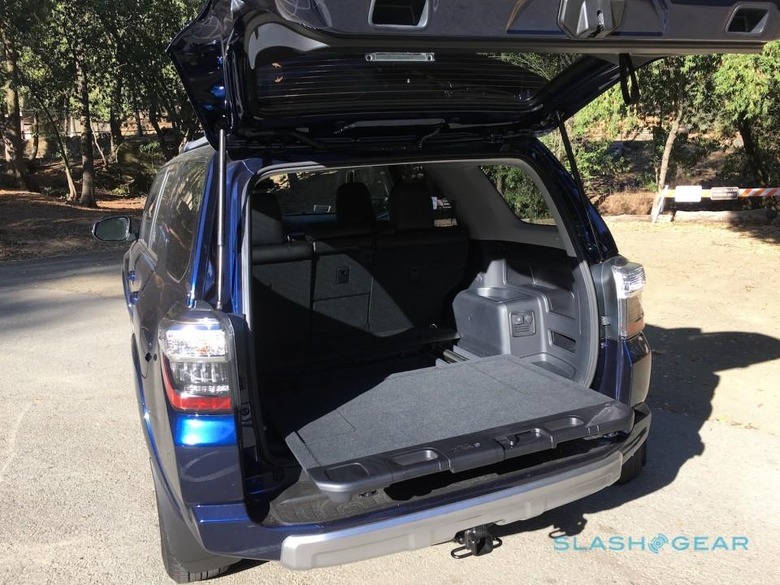
The dashboard controls are clearly designed to be used even when you're wearing gloves, and is all the better for it. Big, chunky knobs and buttons for the HVAC system – which can blow a typhoon gale through the cabin – and easily-twiddled knobs for the infotainment system.
The Entune touchscreen looks a little dwarfed in the center stack, and I wish the onscreen keys were larger to match their physical counterparts, but the system proved stable and easy to use, including the navigation option.
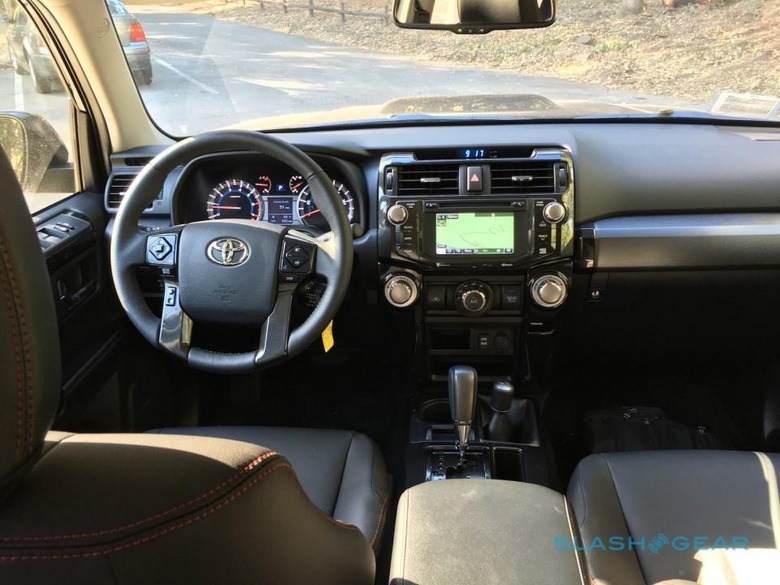
Look up, and there's a cockpit-style flurry of buttons and dials above you to control the various all-wheel-drive options. As well as the separate transfer-case lever down by the gearshift to engage the four-wheel-drive system – which vibrates like a frantic puppy tail while you're driving – there are knobs for downhill assist, locking the rear differential, crawl control that keeps the 4Runner moving at a preset speed either forwards or backwards as you give your full attention to the steering, and adjustable traction to accommodate various surfaces.
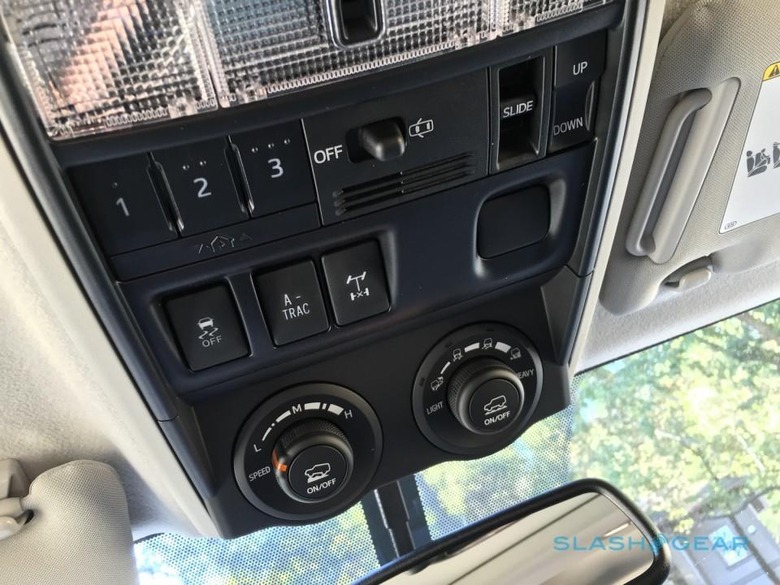
Whether the 4Runner is the truck for you may very well depend on how much of that last paragraph you understood and found yourself wanting.
There's no denying that Toyota has made a wildly capable off-road vehicle, but a huge proportion of modern trucks never tackle terrain any more challenging than curbs in the mall parking lot.
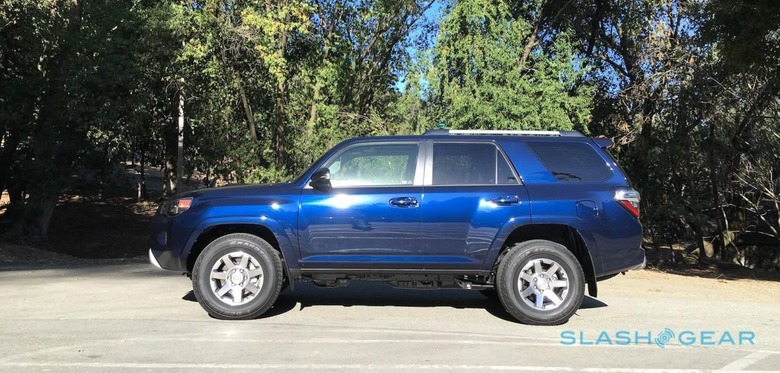
I don't have a problem with people buying SUVs for the space and the lofty driving position – I certainly enjoyed both in the 4Runner – but it's fair to say that there are more road-friendly options out there. You don't have to spend six figures on a Model X to put one on your driveway, either.
All the same, most of those softer SUVs – your shiny electric Tesla included – will likely find themselves struggling if the going gets rough. That's why the 4Runner, for all its flaws, has stuck around. Just be sure you need the abilities or can't do without the butch image before you sign that lease.
[gallerybanner p="411172"]
